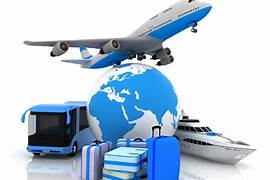
The allure of the tourism industry lies in its promise of escape. Travelers flock to exotic destinations in search of adventure, relaxation, or a temporary reprieve from life’s pressures. Simultaneously, those working within the industry are drawn by the excitement, global connections, and opportunities it offers. However, beneath this glamorous facade, the tourism sector often fuels addiction vulnerabilities for both travelers and workers, creating a cycle of escape that can lead to dangerous consequences.
The Traveler’s Escape
For many, travel serves as an opportunity to escape the monotony or challenges of daily life. The phrase “what happens on vacation, stays on vacation” reflects the indulgence and freedom often associated with travel. Tourists frequently find themselves in environments where social norms are relaxed, and behaviors like excessive drinking, drug use, or gambling are more acceptable than in their everyday lives.
Destinations known for their nightlife, party scenes, or lenient laws, such as Ibiza, Las Vegas, or Amsterdam, actively encourage hedonistic behavior. Tourists may consume substances they wouldn’t typically consider at home, and the temporary nature of their stay creates a perception of risk-free indulgence. This mindset can lead to binge behavior, which, for some individuals, develops into a dependency even after they return home.
Additionally, the concept of “transformational travel” – journeys intended to provoke personal growth or healing – can sometimes backfire. While seeking meaning, some travelers turn to substances or risky behaviors as a shortcut to achieving a sense of euphoria or enlightenment. Over time, these practices can evolve into unhealthy habits.
Workers in the Tourism Industry
The tourism industry also places its workforce at significant risk of addiction. Jobs in this sector often involve irregular hours, high stress, and constant interaction with people from diverse backgrounds. Hospitality workers, tour guides, and airline staff, for example, face the dual pressures of maintaining a cheerful, accommodating demeanor while managing unpredictable schedules and demanding workloads.
For some, substances like alcohol or stimulants become a means to cope with the pressures of their roles. Hotel staff may drink to unwind after long shifts; bartenders and nightlife workers are surrounded by alcohol and drugs as part of their daily environment. The accessibility of these substances, combined with the normalization of their use, increases the likelihood of dependency.
Moreover, the transient nature of many tourism jobs can lead to loneliness and instability. Seasonal contracts, frequent relocations, and long periods away from loved ones contribute to feelings of isolation, making employees vulnerable to addictive behaviors.
Addiction to the Lifestyle
Beyond substances, the tourism industry fosters a culture that can encourage behavioral addictions. The thrill of exploring new places, meeting new people, and experiencing constant novelty is intoxicating for both travelers and workers. This lifestyle, while exhilarating, can become a compulsion. Workers may find it hard to settle into traditional roles or routines, while travelers might feel dissatisfied with life when not on the move.
Addressing the Issue
To mitigate addiction vulnerabilities in the tourism industry, awareness and proactive measures are crucial. Employers can provide mental health support, encourage work-life balance, and create safe environments for their staff. For travelers, promoting responsible tourism and encouraging mindfulness during trips can reduce the tendency to engage in risky behaviors.
The tourism industry thrives on offering an escape, but it must also recognize its role in fostering addiction vulnerabilities. By addressing these challenges, it can create a more sustainable and supportive environment for everyone involved.